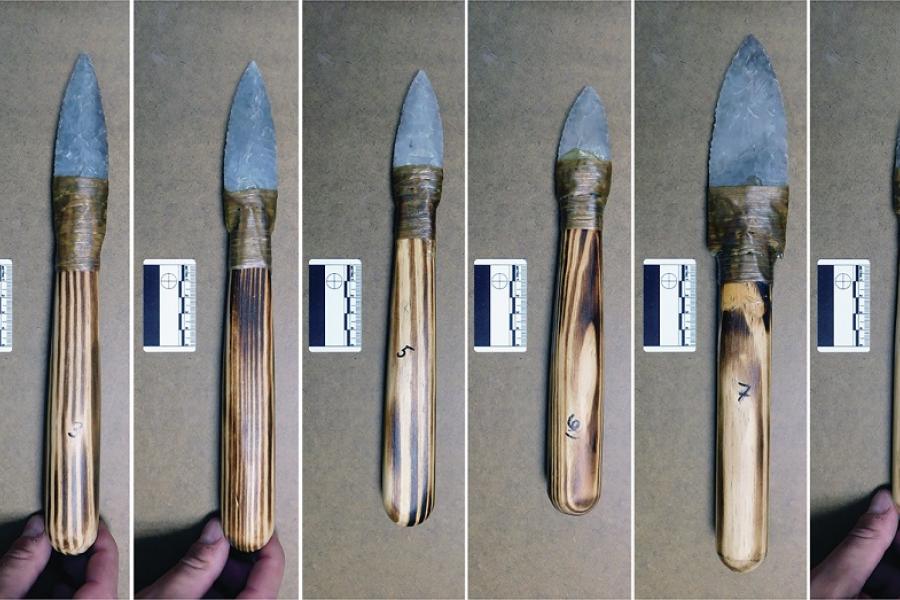Department of Anthropology

Researchers Suggest New Hypothesis for Hominin Invention of Stone Cutting Tools

IN A FLASH: Testing Prehistoric Technology
In Assistant Professor Michelle Bebber's class, students learn how prehistoric people hunted for food and learn to use the ancient weapons they used.

What Makes Us Human?
Fifty years ago, 91▓ų┐Ō Distinguished Professor Owen Lovejoy, Ph.D., was among the very first researchers to study the remains of the famous ŌĆ£LucyŌĆØ (Australopithecus afarensis), a 3-million-year-old fossil that had recently been discovered by paleoanthropologist Donald Johanson in Hadar, Ethiopia.

England, Egypt and Now ŌĆ” Ohio
91▓ų┐Ō alumnus and Professor Emeritus help Hopewell earthworks in Ohio earn UNESCO World Cultural Site designation.

IN A FLASH - FLASHBACK: Views from Anuta, Solomon Islands
Professor Emeritus Richard Feinberg shared images from his research expeditions to the Polynesian island of Anuta.

We Are Here for the Students: Anthropology Professor Discusses Importance of Mentorship

Atlatl Weapon Use by Prehistoric Females Equalized the Division of Labor While Hunting: 91▓ų┐Ō Archaeology Professors Led the Experimental Study
A new study led by Archaeologist Michelle Bebber, assistant professor in 91▓ų┐ŌŌĆÖs Department of Anthropology, has demonstrated that the atlatl (i.e. spear thrower) functions as an ŌĆ£equalizer,ŌĆØ a finding which supports womenŌĆÖs potential active role as prehistoric hunters.

Despite the Dangers, Early Humans Risked Life-Threatening Flintknapping Injuries
For most, the craft known as flintknapping is a skilled hobby or art form that was thought to occasionally require bandages or stitches. However, new research suggests flintknapping is far more dangerous than previously understood.

Groundbreaking Study of Fraternity Hazing Co-Authored by 91▓ų┐Ō Researcher Reveals Little Connection to Group Solidarity
91▓ų┐ŌŌĆÖs newest anthropologist, Assistant Professor Aldo Cimino, Ph.D., has made it his lifeŌĆÖs work to understand the causes and consequences of hazing, including the possible generation of solidarity. He and his co-author recently published an on this question in the journal Evolution and Human Behavior.
